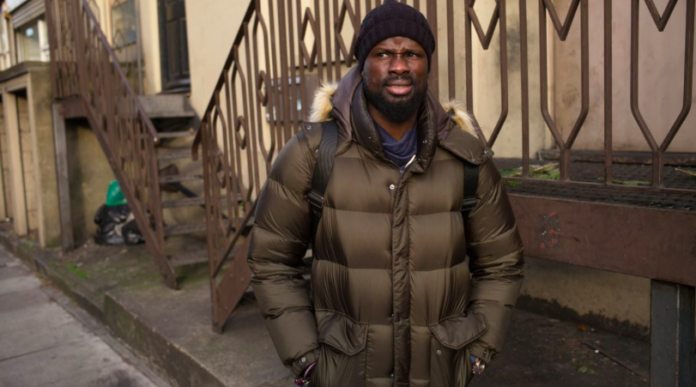Emmanuel Eboué (born 4 June 1983) is an Ivorian former professional footballer who played as a right back.
Formed at ASEC Mimosas, he moved to Europe to play for Belgium’s Beveren in 2002. He spent most of his career, from 2005 to 2011, with Arsenal of the Premier League, playing 214 games, including the 2006 UEFA Champions League Final. Later he moved to Galatasaray, where he played regularly and won five domestic honours in Turkey. Eboué made his international debut for the Ivory Coast in 2004, eventually earning 79 caps by 2013. He was part of their squads at five Africa Cup of Nations tournaments and two World Cups.
He had three children with his Belgian wife, Aurélie, whom he married before joining Arsenal. In December 2017, Eboué told the Sunday Mirror that he is poor and homeless due to his divorce and bad investments that were under his former wife’s control.
In June 2019, Eboué spoke about his ongoing struggles with mental health.
Emmanuel Eboue faced financial and personal challenges after retirement, serves as an important lesson for African football players. Here are some key lessons that can be learned from Eboue’s situation:
Financial literacy and planning
Eboue’s story highlights the importance of financial literacy and planning for professional athletes, including African football players. It’s crucial for players to manage their finances wisely, invest in their future, and plan for their post-retirement life. This includes budgeting, saving, investing, and seeking professional financial advice to ensure financial stability beyond their playing careers.
Career transition and mental health
Eboue’s struggles with depression and other personal challenges after retirement emphasize the importance of career transition and mental health for African football players. Professional athletes often face challenges when transitioning from a highly structured and intense career to retirement. It’s vital for players to prepare for this transition and seek support, including mental health counseling, to cope with the emotional and psychological aspects of retirement.
Surrounding oneself with trusted advisors
Eboue’s story highlights the need for African football players to have a team of trusted advisors, including financial advisors, lawyers, and agents, who can provide guidance and support throughout their careers. Having a reliable support system can help players make informed decisions, protect their interests, and avoid potential pitfalls.
Managing fame and lifestyle
Eboue’s situation serves as a reminder for African football players to manage their fame and lifestyle carefully. It’s important for players to understand the responsibilities and challenges that come with fame, including managing their public image, avoiding negative influences, and making wise lifestyle choices.
Planning for life after football
Eboue’s story underscores the importance of planning for life after football. Professional athletes, including African football players, should be proactive in developing skills, education, and alternative career options to ensure a successful transition into post-retirement life.
Seeking support and speaking up
Eboue’s experience also highlights the importance of seeking support and speaking up when facing challenges. African football players should not hesitate to seek help from trusted individuals, including family, friends, and professionals, when facing financial, personal, or mental health issues.
The situation of Emmanuel Eboue serves as a valuable lesson for African football players to prioritize financial literacy, career transition, mental health, trusted advisors, lifestyle management, planning for post-retirement life, and seeking support when needed. By learning from Eboue’s story, African football players can make informed decisions, protect their well-being, and ensure a successful career and life beyond the football field.





























































